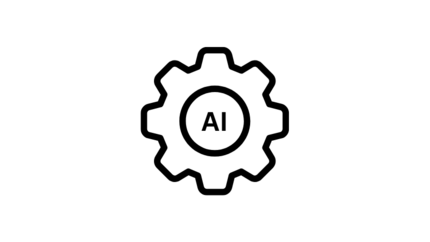Lehigh University is a leader in the thoughtful and ethical adoption of Artificial Intelligence. We empower our community of Future Makers to leverage AI to enhance learning, accelerate research, and improve operational effectiveness. By fostering a culture of critical inquiry, experimentation, and responsible innovation, we ensure our students, faculty, and staff are prepared to thrive in an increasingly AI-driven world, reinforcing our commitment to shaping the future together.
-
For Students
Explore
-
Start with Gemini, then explore Google’s other AI tools: NotebookLM, Gems, and AI Studio.
Get AI-Ready for Your Career-
Complete one of the Center for Career & Professional Development's AI Ready pathways (Requires account activation) - Beginner Pathway, Intermediate Pathway, and Advanced Pathway. Designed to ensure every Lehigh student is AI Ready--equipped to understand, apply, and communicate about AI tools in meaningful and ethical ways.
-
Grow with Google: Lehigh students have free access to advanced AI Training, Google AI Pro, and Google Career Certificates.
Get Specific-
Talk with your professors to learn how AI is changing how people conduct research and work in the areas you are studying.
-
Be sure you understand your instructor's rules on how AI may and may not used in your classes. If you are unsure, ask.
-
Ask your professor if they have a Course-specific AI tutor you can use or other recommended research or learning tools.
Deepen AI Skills and Knowledge-
Learn advanced AI skills through Lehigh’s subscription to Data Camp
-
Start using Keenious, an AI-powered research tool for finding scholarly articles.
-
Consult Lehigh's AI Library guide, with frameworks for evaluating AI output, tips for effective prompting, advice on using AI ethically, and instructions on how to cite AI sources.
Need Help?- Visit the LTS Help Desk if you have questions.
-
-
For Faculty and Staff
Explore
-
Start with Gemini, then explore Google’s other AI tools: NotebookLM, Gems, and AI Studio.
Master the Fundamentals-
Learn at your own pace with LinkedIn Learning and Data Camp
-
Expand your knowledge through LTS Seminars
Take the next step-
Join the SMART Community of Practice
-
Create a GEM! Develop a Course-specific AI Tutor for your class or a Work Assistant to help you with repeated tasks.
-
Review CITL’s guidelines on teaching with Generative AI.
-
Explore Keenious, an AI-powered research tool for finding scholarly articles.
-
For custom projects where Gemini isn’t the best fit, request access to LTS’s GPT Sandbox or our LLM Gateway
Need Help?-
Visit the LTS Help Desk if you have questions
-
Drop in monthly AI Office Hours.
-
Consult with LTS if you need additional help Using AI in the classroom, Developing AI Courses, Developing AI Solutions, Evaluating AI Solutions
-
To ensure you are protecting sensitive information, please review our Data Classification guidelines before using AI tools to process or share institutional data.
Missed an Event?-
Catch up with a recordings of past AI-related events, such as LTS Seminars, , 2025 CITL Symposium on Teaching and Learning, and 2025 AI@Lehigh Summit.
-
For everyone
Review these Guiding Principles, Policies, and Guidelines
Unsure? Ask. AI policies and best practices can vary by college, department, or administrative unit, so sure to ask colleagues and leadership in your area if you need specific guidance.

2nd Annual AI@Lehigh Summit 2026
The Summit, held on January 13, 2026, focused on the practical, ethical, and transformative ways generative AI is reshaping Lehigh’s academic and administrative landscape.
To read the recap, view the recordings, and access panelist resources, visit the AI@Lehigh Summit 2026 page.
-
Ongoing Projects & Pilots
Explore the innovative AI projects currently underway at Lehigh, driving advancements in both academic and administrative domains.
Provost's AI Tutor Project
An initiative to develop and implement AI-powered tutoring systems to enhance student learning and academic support. Faculty interested in participating should email Greg Reihman or Dominic Packer.
Sandbox Environment
A dedicated space for faculty and students to experiment with and test new AI tutoring models and applications. (Setup requires a Ticket to the CITL Team)
LLM Gateway
A unified interface providing access to leading large language models, including OpenAI, Anthropic Claude, and Google Gemini. This platform allows users to select and compare different models for various tasks. Read more.
Google Accelerator Program
A partnership program designed to fast-track AI-driven research and educational projects by providing access to Google's resources, tools, and expertise. For students.
Future Maker Grant: AI Enhancements
A grant program supporting innovative projects from faculty, staff, and students that leverage AI to solve challenges and create new opportunities across academic and administrative functions. Read more.
Recommended Tools
Google Gemini tools are provided as part of Google Licensing for the entire Lehigh community. We recommend you to start with the following tools and access them through your Lehigh account, as it provides enhanced controls and data protection compared to the free standalone versions.

Google Gemini (Standalone)
A family of powerful, multimodal AI models capable of understanding and reasoning across text, images, code, and more.

Google Gems
Customizable, specialized versions of Gemini that can be tailored for specific tasks or workflows. Available in Gemini.

Google NotebookLM
An AI- powered research and writing assistant that helps you synthesize information, generate ideas, and get insights from your own source documents.

Google AI Studio
A Google developer tool for prototyping and building generative AI applications using Gemini models.

Google AI Pro
Subscription plan that provides integrated access to advanced AI-enabled features across Google's products Gmail, Docs, Sheets, and more. The subscription always includes increased limits in various Gemini offerings.

Additional Tools
Explore and compare additional AI tools available for the Lehigh community.

LTS Consultation
Generative AI is rapidly evolving and has the potential to enhance teaching, research, and administrative work. Lehigh encourages responsible experimentation, guided by existing policies. LTS is available to support thoughtful and effective use of AI tools.
- Assistance in using AI in the classroom
- Developing AI Courses
- Developing AI Solutions
- Evaluating AI Solutions

Training Opportunities
Develop your AI skills and knowledge with these curated learning resources and communities of practice.
- LinkedIn Learning: Access a wide range of on-demand courses covering AI concepts, machine learning, and data science. Read more
- DataCamp: An interactive learning platform for data science and AI, offering hands-on coding exercises and projects. Read more
- Grow with Google via Coursera: Professional certificate programs and courses in high-growth fields like AI, machine learning, and data analytics.
- SMART (Communities of Practice): Join faculty and staff groups dedicated to exploring and implementing AI tools and methodologies in teaching, research, and work. Read more
- LTS Workshops & Seminars: Participate in workshops and seminars hosted by Library and Technology Services (LTS) on various AI topics and tools. Register for seminars.
- AI Office Hours: Attend LTS AI office hours to explore tools like Google Gemini, NotebookLM, and DataLab, learn how LTS staff use them in teaching and learning, and get your questions answered. Read more.
- O'Reilly Books, a long-standing player in technical knowledge, now offers courses, available through Lehigh Libraries. Explore free courses in AI.
We encourage you to keep apprised of emerging trends and tools by attending LTS Seminars, viewing the recordings of the CITL Summer Workshops on AI Tools and Prompt Engineering, learning from the AI-related courses through LTS-provided access to DataCamp and LinkedIn Learning, and staying current with discipline- or domain-specific publications relevant to your work.
AI@Lehigh

Lehigh AI in The Preserve
Digital hub supporting AI literacy and innovation in teaching, research, and community engagement. Explore classroom activities, technical how-tos, and resources funded by a Lehigh Future Makers Strategy Grant.

GenAI in the Libraries
Lehigh Libraries guide on Generative AI, tailored for academic research. Designed for students and researchers seeking information-literacy informed approaches to exploring AI's applications.

Generative AI Advisory Group
Lehigh’s Generative AI Advisory Group is exploring how to best leverage AI to advance the university’s mission, including when purposeful non-use may be the right choice. To share your comments or suggestions, please submit them to the committee.
Additional resources
- Chronicle of Higher Education, How Higher Ed can Adapt to the Challenges of AI
- EDUCAUSE, 2024 EDUCAUSE AI Landscape Study
- EDUCAUSE, Resources on AI in Higher Education
- Gartner, Education Automation, Adaptability, and Acceleration
- Gartner, Generative AI and Education: The Short-Term Risks and Long-Term Opportunities
